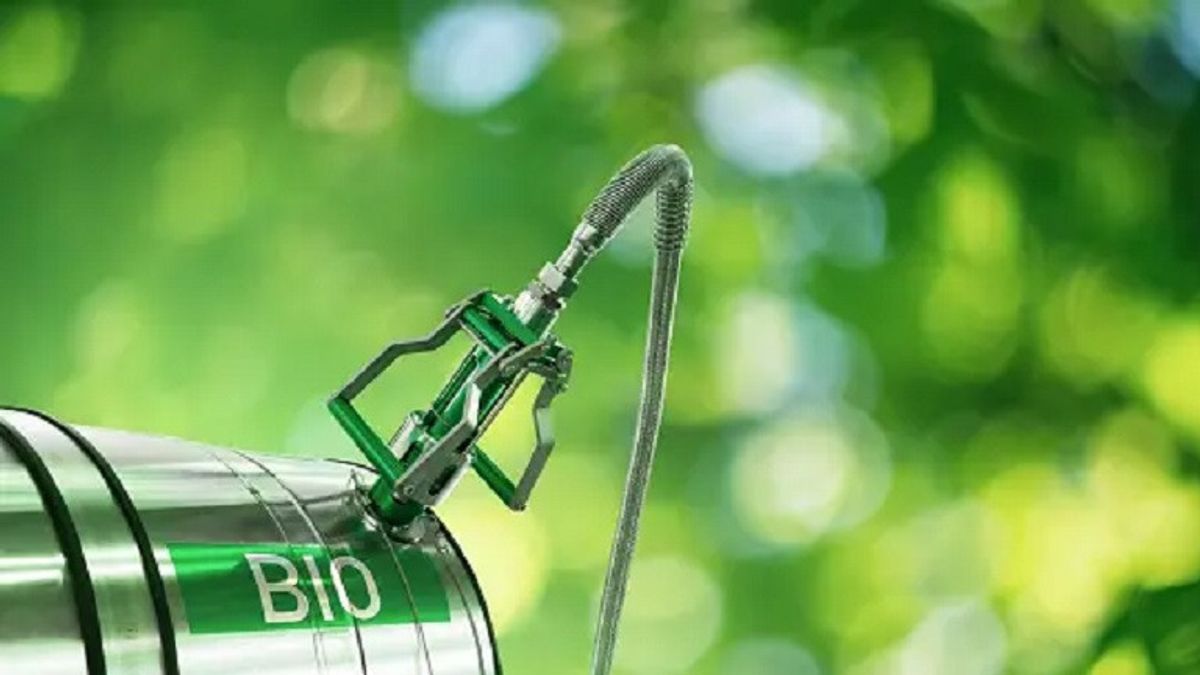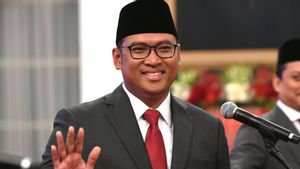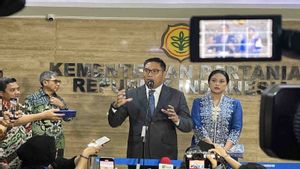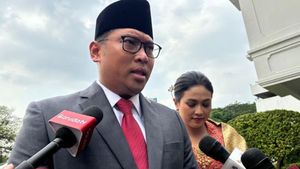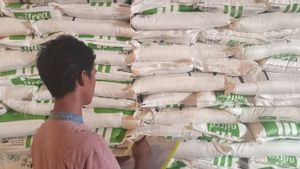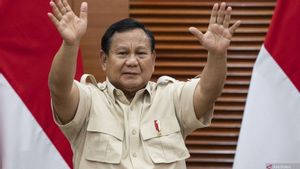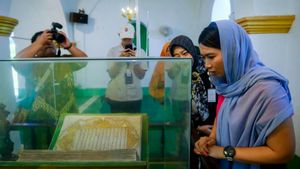JAKARTA - Minister of Agriculture (Mentan) Andi Amran Sulaiman said that currently the Ministry of Agriculture has prepared the biofuel industry to support the B50 program. This was promoted by Elected President Prabowo Subianto.
"Now the company is ready. We are preparing from now on the company which will be as directed by the President (Joko Widodo) and the elected president (Prabowo Subianto) we will achieve B50 in the future," Amran said quoting Antara.
Amran said the Indonesian government had prepared the biofuel industry to support the B50 program, which is an initiative to increase the use of biofuels by up to 50 percent of the total diesel fuel consumption.
"Efforts to prepare have been carried out since now, by preparing a company that will play an important role in achieving the B50 target instructed by President Joko Widodo and President-elect Prabowo Subianto," he said.
However, details regarding the location and industrial areas that have been prepared to support the program are not explained in detail by Amran.
He explained that the B50 program aims to reduce Indonesia's dependence on diesel imports by replacing it with biofuels derived from crude palm oil (CPO).
Currently, Amran said, Indonesia's biofuel production reaches 46 million tons per year, with around 26 million tons exported to the global market. Meanwhile, the country still imports around 5.3 million tons of diesel each year.
"In the current biofuel, our production is 46 million. We export 26 million. If we convert again because we import 5.3 million tons of diesel, what does that mean? Later, the world's CPO price will increase in the end, which is enjoyed by Indonesian farmers," he said.
The Minister of Agriculture expressed his hope that the implementation of the B50 program will not only reduce dependence on diesel imports, but can also increase CPO prices in the international market.
According to him, this is considered a beneficial step for farmers in Indonesia, which is the world's largest producer of CPO with a market share reaching 58 - 60 percent.
In addition, the Minister of Agriculture also highlighted Indonesia's potential as the main provider of global CPO raw materials. According to him, this policy is believed to not cause significant problems, along with the supply of CPO in Indonesia is safe and will not be disrupted.
"We know, our raw material source is for the world's largest CPO. We have 58 percent and even 60 percent for CPO. Later, I don't think there will be any problems, God willing, it will be safe," said Amran.
Meanwhile, a number of people considered the sustainability of the biodesel program as a vegetable fuel launched by the government to require handling problems in the upstream oil palm sector.
Head Of Sustainability Division of the Indonesian Biofuel Producers Association (Aprobi), Rapolo Hutabarat in Jakarta, Friday emphasized that handling problems in the upstream oil palm sector is the key to the sustainability of the biodiesel program because it involves the availability of raw materials.
"This problem must be resolved immediately, especially from the upstream side. We know that there is a lot to be done in the upstream sector, especially because this is what determines whether there is raw material," he said in the Focus Group Discussion (FGD) with the theme 'Biodiesel for the Country' held by the Palm Oil Fund Management Agency (BPDPKS) and Sawit Setara.
According to him, the sustainability of biofuel blending programs, such as B40 and the possibility of further improvement to B45 or B50 are very important. However, the success of the program is very dependent on the availability of raw materials in the upstream sector.
SEE ALSO:
He said Aprobi hopes that the government can immediately resolve problems in the upstream sector so that Indonesia can achieve big ideals in the palm oil industry, including the CPO production target of 100 million tons by 2045.
Secretary General of the Central Executive Board of the Indonesian Palm Oil Farmers Association (Apkasindo) Rino Afrino added the need to increase productivity through upstream sector improvement measures.
According to him, there are several challenges in increasing oil palm productivity, including the legality of land, which is currently around 3.4 million hectares of palm oil land, which is convicted in forest areas and threatened with being lost.
Then, he said, the realization of the people's oil palm rejuvenation program (PSR) which was still below 10 percent of the target or 390 thousand hectares of the 2.4 million hectares set.
The English, Chinese, Japanese, Arabic, and French versions are automatically generated by the AI. So there may still be inaccuracies in translating, please always see Indonesian as our main language. (system supported by DigitalSiber.id)
